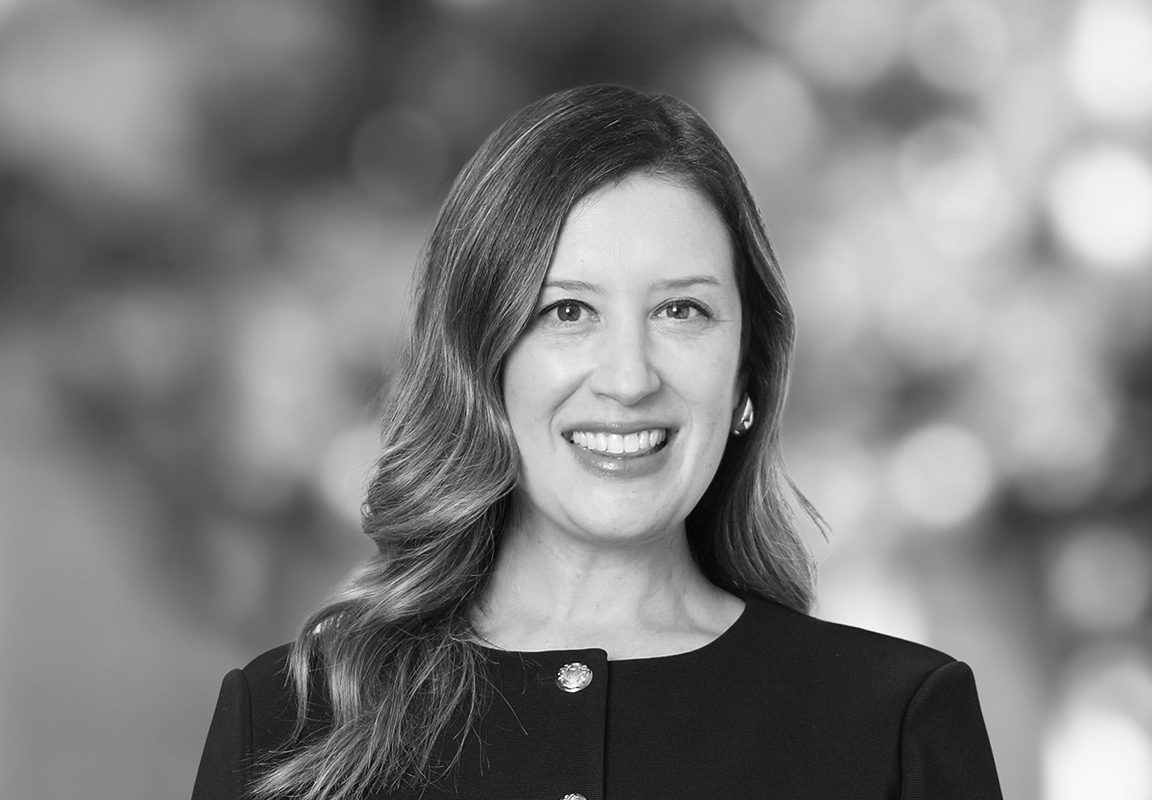
The Complementary Roles of the European Public Prosecutor's Office and the European Anti-Fraud Office
11 min read
In June 2021, the European Public Prosecutor's Office ("EPPO"), a body charged with investigating and prosecuting economic crimes against the financial interests of the European Union ("EU"), became the first supranational prosecution authority. The EPPO joined other EU bodies engaged in anti-fraud and policy work, notably including the European Anti-Fraud Office ("OLAF"). This Client Alert provides a high-level overview of the complementary roles of the EPPO and OLAF in protecting the financial interests of the EU.
OLAF's Role in the Fight against Fraud on the EU
In 1999, the European Commission created OLAF, an independent body with a mandate to detect, investigate and prevent economic crime involving EU funds.1 Although OLAF's remit includes anti-fraud policy and advisory work, its core mission is to investigate and make appropriate reports and recommendations regarding potential wrongdoing falling within the scope of its mandate.2 OLAF is empowered to conduct independent administrative investigations into fraud, corruption and other illegal activity which adversely impacts EU financial interests, and into serious misconduct by EU officials and staff and members of EU institutions.3 While it does not have prosecutorial power, OLAF has numerous investigative tools at its disposal, including the authority to conduct "on-the-spot checks" and to interview witnesses and persons concerned.4
Upon completion of an investigation, OLAF makes appropriate judicial, financial, administrative and/or disciplinary recommendations to EU entities and to Member States.5 Judicial recommendations are OLAF referrals to local law enforcement partners in Member States to prosecute under national laws and through national procedures individuals and/or entities for fraud against the EU.6 Financial recommendations are aimed at EU institutions' recovery from Member States of misappropriated EU funds.7 Administrative recommendations are proposals to Member States to improve policies or procedures to prevent similar fraudulent misappropriation of EU funds from recurring.8 Disciplinary recommendations outline proposed remedial action for EU institutions to take against EU officials and staff or members of EU institutions that have breached professional conduct rules.9 While OLAF may make recommendations, it does not have authority to compel EU institutions or Member States to implement them.10 OLAF monitors the implementation and records and analyzes the outcome of recommendations that are followed.11
The EPPO's and OLAF's Complementary Roles and Working Relationship
Although OLAF has significant tools to carry out its investigative mandate as described above, it must rely on national authorities to prosecute wrongdoers. As the EU's first supranational public prosecution office, the EPPO has the power to investigate and prosecute wrongdoers via the European Delegated Prosecutors appointed by participating Member States.12
The EPPO was established by Council Regulation (EU) 2017/1939 of 12 October 2017 implementing enhanced cooperation on the establishment of the European Public Prosecutor's Office (the "EPPO Regulation") and launched operations on 1 June 2021.13 Given the EPPO's and OLAF's common objectives and potential overlap in aspects of their work, the EPPO Regulation expressly directs the EPPO to "establish and maintain a close relationship with OLAF based on mutual cooperation within their respective mandates and on information exchange. The relationship shall aim in particular to ensure that all available means are used to protect the [European] Union's financial interests through the complementarity and support by OLAF to the EPPO."14 To promote the coordination of efforts, on 23 December 2020, Regulation (EU, Euratom) 883/2013 (the "OLAF Regulation") was amended by Regulation (EU, Euratom) 2020/2223. Paralleling the language of the EPPO Regulation, the OLAF Regulation, as amended, provides in relevant part that OLAF will work with the EPPO "to ensure the highest level of protection of the financial interests of the Union through synergies between [the EPPO and OLAF] while ensuring close cooperation, information exchange, complementarity and the avoidance of duplication."15 The OLAF Regulation, as amended, further directs OLAF to agree on working arrangements with the EPPO to facilitate the exchange of information and complementary investigations.16 To that end, on 5 July 2021, the EPPO and OLAF concluded a detailed working arrangement (the "Working Arrangement").17 Together, the EPPO Regulation, the OLAF Regulation, as amended, and the Working Arrangement contain provisions that govern cooperation between the EPPO and OLAF. For purposes of this article, we focus on the two offices' cooperation with respect to opening and conducting investigations.
Articles 8(1) and 24(1) of the OLAF and EPPO Regulations, respectively, oblige EU institutions, bodies, offices, and agencies and, in the case of the EPPO, national authorities, to report promptly facts that could give rise to a case within each office's competence or mandate.18 The OLAF Regulation Amendment provides that entities that report a particular fact pattern to the EPPO can comply with the corresponding reporting requirement in the OLAF Regulation by sending to OLAF a copy of the report provided to the EPPO. Notably, the OLAF Regulation Amendment makes clear that the reporting requirement in Article 8(1) of the OLAF Regulation does not apply to the EPPO with respect to cases within the EPPO's competence, i.e., under the Regulation, the EPPO does not have to report to OLAF cases it is investigating.19
Section 5 of the Working Arrangement provides additional color around cooperation between the EPPO and OLAF with respect to reporting and opening and conducting investigations. Section 5.1 addresses OLAF's reporting obligations to the EPPO, while Sections 5.2 and 5.3 govern when the EPPO must or may report potential cases to OLAF.
Pursuant to its obligation to "without undue delay report to the EPPO any criminal conduct in respect of which [the EPPO] could exercise its competence,"20 Section 5.1.1 of the Working Arrangement requires OLAF to determine whether the EPPO is investigating particular conduct by checking the EPPO's case management system. If the EPPO does not have an open case, OLAF must report the facts to the EPPO so it may consider whether to open a new case.21 In doing so, OLAF may propose to the EPPO that OLAF conduct a complementary investigation or provide support in furtherance of the EPPO's investigation;22 the EPPO also may request investigative support from OLAF.23
Sections 5.2 and 5.3 address when the EPPO must or may report information to OLAF. By reference to Article 8 of the OLAF Regulation, Section 5.2 of the Working Arrangement requires the EPPO to report to OLAF matters where the EPPO lacks competence to pursue a case that involves a fact pattern that may constitute illegal conduct affecting the financial interests of the EU.24 Section 5.3 of the Working Arrangement sets forth additional scenarios where the EPPO "will consider" informing OLAF of potential cases where the EPPO declines to open a case, elects not to investigate or prosecute or decides to dismiss a case. In such instances, the EPPO will consider informing OLAF where precautionary measures and/or financial, administrative or disciplinary actions may be appropriate to protect EU financial interests so that OLAF may launch its own investigation. Such cases may arise, for example, where the potential offenses are or will soon be time-barred for purposes of criminal prosecution or involve a Member State that opted not to participate in the EPPO.25
Article 6 of the Working Arrangement relates to mutual support and cooperation between the EPPO and OLAF. As a guiding principle, Section 6.2 of the Working Arrangement provides that any complementary investigation by OLAF – whether proposed by OLAF or requested by the EPPO – should have as an objective collecting information necessary to adopt precautionary measures or to make administrative, financial or disciplinary recommendations.26 The remainder of Section 6 relates to the terms of the offices' mutual support and assistance, as well as the potential inclusion by the EPPO of OLAF in any "joint investigative teams" to combat complex fraud schemes involving participating and non-participating EU Member States and third countries.27
Conclusion
As structured, the EPPO and OLAF present a potentially formidable force to be reckoned with in the fight against fraud affecting the financial interests of the EU. While the EPPO will take the lead on prosecuting unlawful conduct consistent with its mandate in the 22 participating Member States, OLAF will continue to investigate conduct that may negatively affect the EU's financial interests in the five Member States that are not participating in the EPPO.28 In addition, in parallel with the EPPO's criminal prosecutions, OLAF's financial, administrative and disciplinary recommendations will continue to promote recovery of misappropriated EU funds, address the root causes of conduct that has a negative impact on the EU's financial interests and discipline serious misconduct by EU officials and staff, and members of EU institutions.
Effective cooperation and collaboration between the EPPO and OLAF will strengthen the fight against fraud affecting the EU's financial interests. Given the early stage of the EPPO's operations, it remains to be seen how effectively and efficiently the offices will coordinate and cooperate in practice.
1 Commission Decision 1999/352 of 28 Apr. 1999 establishing the European Anti-fraud Office (OLAF), 1999 O.J. (L136), available at https://eur-lex.europa.eu/LexUriServ/LexUriServ.do?uri=OJ:L:1999:136:0020:0022:EN:PDF.
2 Management Plan 2021, EUROPEAN ANTI-FRAUD OFFICE, Jan. 18, 2021, at 6, https://ec.europa.eu/info/system/files/management-plan-olaf-2021_en.pdf.
3 Regulation (EU, Euratom) No 883/2013 of the European Parliament and of the Council of 11 Sept. 2013 concerning investigations conducted by the European Anti-Fraud Office (OLAF) and repealing Regulation (EC) No 1073/1999 of the European Parliament and of the Council and Council Regulation (Euratom) No 1074/1999, 2013 O.J. (L248), Art. 1, available at https://eur-lex.europa.eu/legal-content/EN/TXT/?uri=CELEX%3A32013R0883 (hereinafter, the "OLAF Regulation").
4 Id. at Arts. 3(1)-(2), 4(2)(b), and 9(2).
5 Id. at Art. 11(1).
6 Guidelines on Investigation Procedures for OLAF Staff, EUROPEAN COMMISSION: EUROPEAN ANTI-FRAUD OFFICE, Oct. 11, 2021, Art. 25.8, https://ec.europa.eu/anti-fraud/system/files/2021-10/gip_2021_en.pdf.
7 Id. at Art. 25.10.
8 Id. at Art. 25.11.
9 Id. at Art. 25.9.
10 FAQs, EUROPEAN COMMISSION: EUROPEAN ANTI-FRAUD OFFICE, https://ec.europa.eu/anti-fraud/about-us/faqs_en.
11 Guidelines on Investigation Procedures for OLAF Staff, Arts. 30.2 - .3.
12 European Public Prosecutor's Office, EUROPEAN COMMISSION: EUROPEAN ANTI-FRAUD OFFICE, https://ec.europa.eu/anti-fraud/policy/preventing-fraud/european_public_prosecutor_en; EU Public Prosecutor's Office Launches Operations, WHITE & CASE, June 4, 2021, https://www.whitecase.com/publications/alert/eu-public-prosecutors-office-launches-operations. Hungary, Poland, and Sweden decided not to join the EPPO, though Sweden reportedly intends to join in 2022; Denmark and Ireland opted out from the area of freedom, security, and justice. The EPPO is establishing working arrangements with these five non-participating Member States to define how the EPPO will cooperate with them. Members, EUROPEAN PUBLIC PROSECUTOR'S OFFICE, https://www.eppo.europa.eu/en/members; Questions and Answers: Launch of the Activities of the European Public Prosecutor's Office (EPPO), EUROPEAN COMMISSION, June 1, 2021, https://ec.europa.eu/commission/presscorner/detail/en/qanda_21_2795.
13 Council Regulation (EU) 2017/1939 of 12 Oct. 2017 implementing enhanced cooperation on the establishment of the European Public Prosecutor's Office ('the EPPO'), 2017 O.J. (L283), available at https://eur-lex.europa.eu/legal-content/EN/TXT/?uri=CELEX%3A32017R1939 (hereinafter, the “EPPO Regulation”); Protecting the EU budget: European Public Prosecutor's Office will start operating on 1 June, EUROPEAN COMMISSION, May 26, 2021, https://ec.europa.eu/commission/presscorner/detail/en/IP_21_2591.
14 EPPO Regulation, Art. 101. The EPPO Regulation also directs the EPPO to establish and maintain close relationships with Eurojust and Europol, among other entities. See Articles 100 and 102, respectively.
15 Regulation (EU, Euratom) 2020/2223 of 23 Dec., 2020 amending Regulation (EU, Euratom) No 883/2013, as regards cooperation with the European Public Prosecutor's Office and the effectiveness of the European Anti-Fraud Office investigations, 2020 O.J. (L437), (3), available at https://eur-lex.europa.eu/legal-content/EN/TXT/PDF/?uri=CELEX:32020R2223&from=EN (hereinafter, the “OLAF Regulation Amendment”).
16 Id. at Art. 12g.
17 Working Arrangement between the European Anti-Fraud Office and the European Public Prosecutor's Office, July 5, 2021, https://www.eppo.europa.eu/sites/default/files/2021-07/Working_arrangement_EPPO_OLAF.pdf (hereinafter, the “Working Arrangement”).
18 Article 8(1) of the OLAF Regulation provides: "The institutions, bodies, offices and agencies shall transmit to the Office without delay any information relating to possible cases of fraud, corruption or any other illegal activity affecting the financial interests of the Union." Article 24(1) of the EPPO Regulation provides "The institutions, bodies, offices and agencies of the Union and the authorities of the Member States competent under applicable national law shall without undue delay report to the EPPO any criminal conduct in respect of which it could exercise its competence in accordance with Article 22, Article 25(2) and (3)."
19 OLAF Regulation Amendment, Arts. 8(1) and (4).
20 EPPO Regulation, Art. 24(1).
21 Working Arrangement, § 5.1.2.
22 Id. at § 5.1.4.
23 OLAF Regulation Amendment, Art. 12e.
24 Working Arrangement, § 5.2.1; OLAF Regulation Amendment, Arts. 8(1) and (4). The "PIF Directive" defines conduct regarded as fraud affecting the EU's financial interests. Directive (EU) 2017/1371 of the European Parliament and of the Council of 5 July 2017 on the fight against fraud to the Union's financial interests by means of criminal law, 2017 O.J. (L198), Article 3(2), available at https://eur-lex.europa.eu/legal-content/EN/TXT/?uri=uriserv:OJ.L_.2017.198.01.0029.01.ENG. The EPPO Regulation defines the EPPO's competence by reference to the PIF Directive and other materials.
25 Working Arrangement, § 5.3.2.
26 Id. at § 6.2.1.
27 Id. at §§ 6.3 - .4.
28 Frequently Asked Questions on the European Public Prosecutor's Office, EUROPEAN COMMISSION, Aug. 7, 2018, https://ec.europa.eu/commission/presscorner/detail/en/MEMO_18_4767.
White & Case means the international legal practice comprising White & Case LLP, a New York State registered limited liability partnership, White & Case LLP, a limited liability partnership incorporated under English law and all other affiliated partnerships, companies and entities.
This article is prepared for the general information of interested persons. It is not, and does not attempt to be, comprehensive in nature. Due to the general nature of its content, it should not be regarded as legal advice.
© 2022 White & Case LLP



